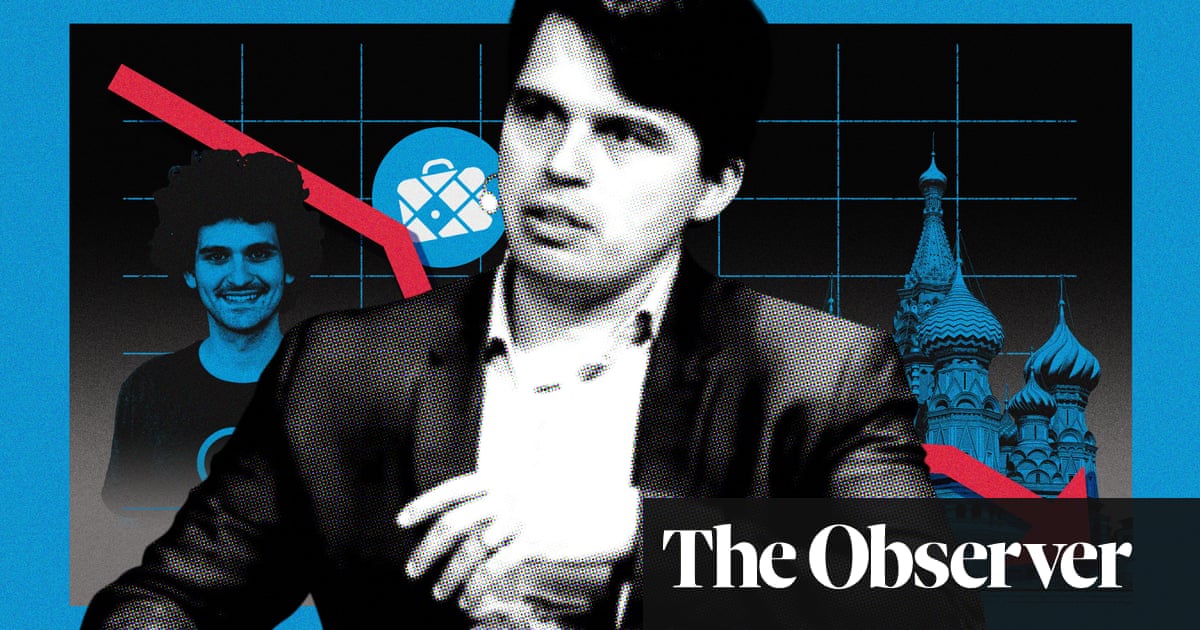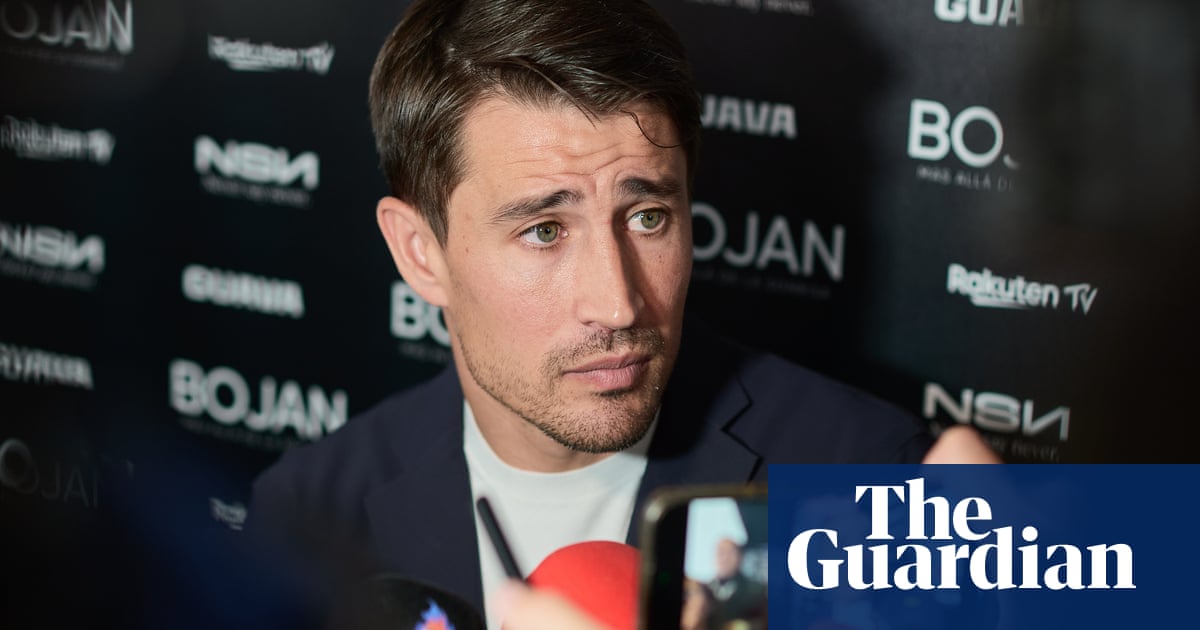
Former prodigy is running classes to help wannabe footballers develop skills and resilience, and says he is happy at last
n this spot of land, a couple of minutes off the M25 and surrounded by stables, Sonny Pike can see his past fade over the horizon while the future glistens more brightly than ever. It was a few metres from here, on a plot owned by his mother-in-law, that Pike lived in a mobile home during the early 2010s.
Life had been tough, sometimes nightmarish, for a long time but there was light in the form of his now-wife, Rosie, and the birth of their daughter. Freya’s arrival was, he says, “when I started pulling my finger out” and the period since has brought a journey he struggles to comprehend.
In some ways it has been a circuitous one because, whereas Pike once knew he had to leave, he now rushes back here every day. He finishes work in his black cab after lunch and then drives to the small, smart indoor 3G training facility that, along with friends in the construction industry, he spent the winter building.
The Sonny Pike Academy opened last month and early business was encouragingly brisk but in other senses the journey has taken him somewhere he had given up on reaching. Pike had turned his back on a sport that ravaged his confidence and took him to the bleakest of places before summoning extraordinary strength to clear his head and give it another chance.
Pike was the wonderkid who, at one point in the 1990s, barely seemed to be off the television. The story of how things fell apart is desperately sad and presents essential reading for anyone involved with a young footballer. Four years ago he decided to tell it, resurfacing to give several interviews, including one to the Guardian. The turnaround those conversations wrought was, he believes, profound.
“I don’t want to make it sound like a miracle but talking helped me so much,” he says. “I find myself speaking about my issues almost daily now and I don’t struggle, it’s just all out there. I feel free to go, ‘I’m having a nightmare today, I’m not happy about this or that’, where before I’d just bottle it up.
“After talking about all of it I felt happy and ready to get involved in football again. I found myself doing the same things I’d been doing as a kid – looking at boots in magazines, checking out balls like the old Adidas Questras and the Mitre Cosmics. All these old sensations were coming back and I thought: ‘You know what, why am I so worried about investing my feelings in this?’ For years I’d been nervous. I hadn’t wanted to get hurt again because I had a lot of problems. But I thought: ‘I’m going to go for it again.’”
Pike formed a clear idea of what he could offer. For one thing, he had trodden a path he would not wish on anyone and there was no shortage of advice he could impart. He visited a number of clubs and gave talks at universities and other institutions, expanding on the problems that sent his life off course. There were offers to perform ball-juggling tricks for TV adverts but that did not feel right and was, given all that had passed, a little close to the bone. Two decades after being the next big thing, there was a better way to channel his gift.
“Playing football, that was my forte: the skills, the touch,” he says. “I started watching videos on YouTube of coaches doing certain things, took some badges and other qualifications, and just started doing sessions in my local park via word of mouth or people I knew from before. I said to Rosie: ‘This is a good idea, I feel it suits me and I’m naturally gravitating towards it.’ And then we came up with this idea.”
His one-on-one academy classes are aimed largely, but not exclusively, at youngsters who aspire towards a professional career. Some of his students are training with top-flight or Football League clubs but have enlisted Pike to fine-tune some of the technical movements – quick feet, tight spaces, close control – that made him such an enthralling prospect. Exercises from the time he spent, famously, as a trialist at Ajax go down well and when we meet he has been perfecting what he calls the “Ajax handclap” – dribbling in and out of cones while clapping above your head – with Finley, a 14-year-old on trial at Southampton.
Others might be lacking confidence in different areas. Pike wants to develop an operation that helps create footballers but assists them in developing the resilience to survive all eventualities. “Away from the pitch, that’s where I find I can really help,” he says. “I’ve had kids here who stop midway through a session and explain they’ve been scared to make a tackle, or something’s happened at school. We’ll have a conversation and it means the world to me when I get a message later saying ‘thanks’ or ‘you’ve brought him right out of himself’. It’s as if I’m coming back to do the things I needed done for me 20 years ago, trying to be the person I wish I’d had by my side when I was 14.”
Pike is gentle, softly spoken, easy company. It is not difficult to see how he can be that mentor figure, although he thinks young players today have more sophisticated support networks than were available to him. “My story was very much a one-off, I think. At that time, I was the only person to live that; no one had gone as far as I did with all the big companies and all that attention. That’s got a lot to do with what went on.
“Generally I think the academies are much better than they used to be; many of the ones I’ve visited have impressed me. But there still needs to be more. I think there should be a mandatory standard for in terms of aftercare and the mental health side.”
Most of the attention, when Pike underwent his catharsis in 2016, was on the devastation wreaked by those grasping for spoils before his playing prospects unravelled. His father, Mickey, came into particular focus and there has been no reconciliation. “No ill feeling or anything, it was 20 years ago and loads has happened, but we haven’t met or spoken,” he says. Some of the revelations back then were shocking; his autobiography is due in September and he thinks the traumas it will lay bare are greater.
“When I stopped playing football, some of the mistakes I made and things I did were just ridiculous. There were positions I found myself in during my early 20s that I shouldn’t have ever been in. Loads of problems; I struggled for a while with everything. It was just through anger at not being a footballer, things not going your way, and it gets you acting in a way you really shouldn’t at all.
“There are a lot of lessons from those times I’d like to convey to the kids here just so that, whether they become a footballer or not, they can hit the ground running in life and live normally.”
ife is treating him well on all fronts, at long last. Family time with Rosie, Freya and five-year-old Beau is the priority but he takes visible delight in being in love with football again and there are big hopes for his coaching school. Pike remembers studying The Knowledge in “a tiny little shed” but hopes that, one day, he may be able to leave the cab and concentrate on the new development.
It is a heartwarming story: a happy ending in one sense; a vivid new beginning in another. It took so much pain, hurt and darkness to get here but he wonders whether he has finally found his place.
“I’ve actually started thinking that to myself quite a lot recently,” he says. “I was meant to be this star footballer and all of a sudden I’m here doing this for young players. All over the country there are people setting things up to coach kids and help them back into football and I’m now one of them. Maybe it was meant to be this way; perhaps this is what I was supposed to do all along.”












